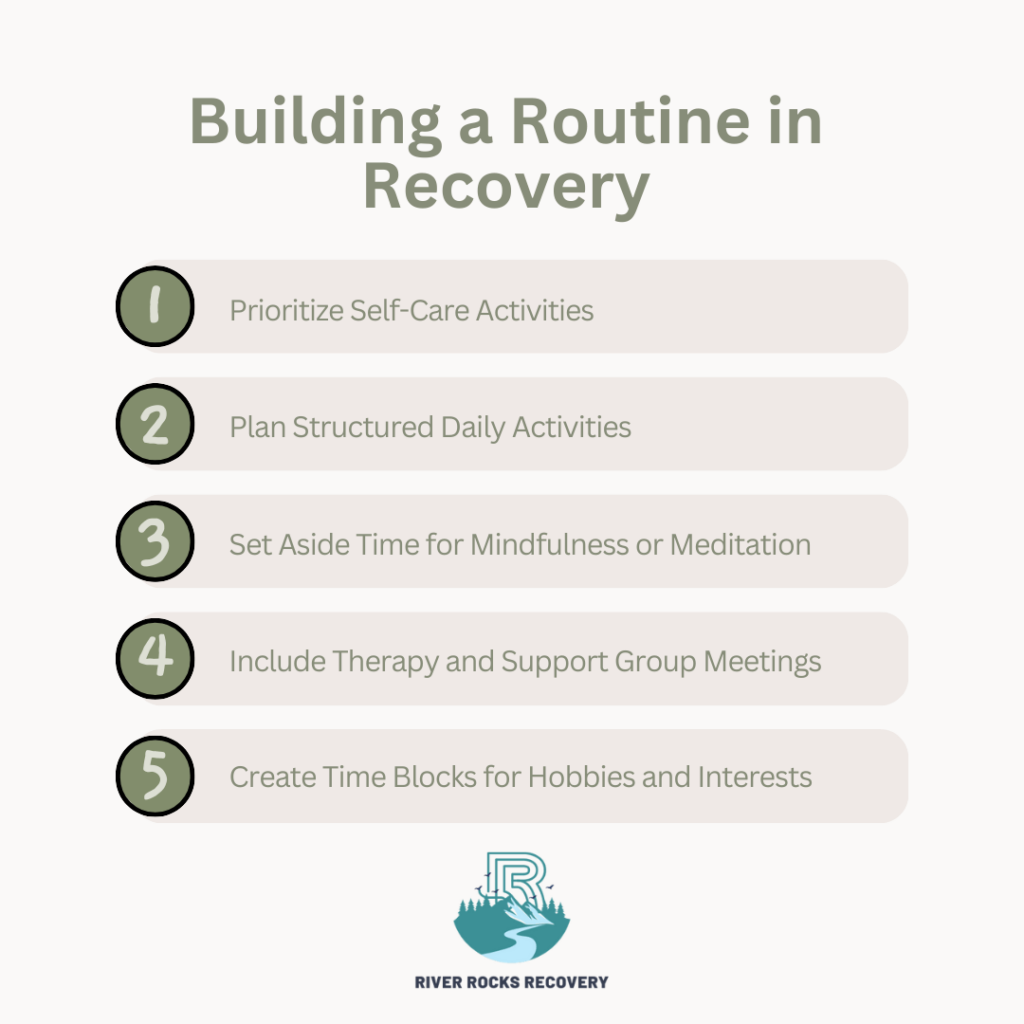Recovering from addiction is difficult. While the focus is often on physical and mental health, an overlooked aspect of recovery is battling boredom. Boredom can become a major obstacle during the recovery process, as it may lead to negative thoughts and cravings. But with the right strategies, you can stay engaged, positive, and on track toward a healthier life. This blog will explore some effective ways to combat boredom during recovery, especially if you are in an Addiction Treatment Center Ohio or an Ohio Addiction Treatment Center.
1. Find New Hobbies
One of the best ways to fight boredom is to find new hobbies that excite you. During addiction, many people lose touch with activities they once enjoyed, or they may have never explored hobbies outside of their substance use. Recovery is a great time to rediscover old interests or try new ones. Whether it’s painting, photography, or learning a musical instrument, filling your free time with a creative outlet helps you stay occupied.
Enrolling in an Addiction Treatment Program can offer various recreational activities that allow you to engage in positive, enjoyable experiences. Many Addiction Therapy Programs integrate hobbies as part of their holistic approach to recovery, offering patients the opportunity to develop new skills and passions.
2. Stay Physically Active
Physical activity not only helps improve your health but also keeps your mind engaged. Exercise releases endorphins, the brain’s “feel-good” chemicals, which can boost your mood and help reduce cravings. Whether it’s going for a walk, joining a yoga class, or participating in a team sport, staying active can fill your schedule and help keep boredom at bay.
Many Addiction Treatment Programs encourage physical activity as part of their therapy, especially in settings like Partial Hospitalization Programs or Intensive Outpatient Programs. These programs often offer structured activities to ensure you stay engaged and healthy throughout your recovery.
3. Build a Routine
Boredom often arises from a lack of structure. Building a daily routine can help you stay organized and reduce the chances of feeling idle or lost. When you have a set plan for your day, you are less likely to experience boredom or relapse triggers. This routine could include attending therapy sessions, working on personal goals, exercising, and socializing.
If you’re part of an Outpatient Treatment Program, developing a structured routine is particularly important. Without the constant supervision that comes with more intensive care, it’s easy to fall back into old patterns. Setting clear daily goals and sticking to them can make your recovery smoother.

4. Practice Mindfulness and Meditation
Mindfulness and meditation are powerful tools for staying focused and present in the moment. They help calm the mind and allow you to manage stress, anxiety, and boredom in a healthier way. By practicing mindfulness, you can learn to be more aware of your thoughts and feelings, and avoid falling into negative patterns when boredom strikes.
Mindfulness is often a key component of Addiction Therapy Programs, helping patients develop coping mechanisms that promote long-term recovery. Whether through guided meditation, deep breathing exercises, or journaling, staying mindful can help you remain engaged during your recovery journey.
5. Connect with Others
Isolation can make boredom worse, so it’s important to stay socially connected. Spend time with friends, family, or peers who support your recovery. Attending group therapy sessions or peer support meetings is another way to interact with others going through similar experiences. Sharing your journey and hearing others’ stories can provide motivation and keep you engaged in your recovery.
Many Addiction Treatment Programs include group therapy sessions that foster connection and build a sense of community. Whether you’re in a Partial Hospitalization Program, Intensive Outpatient Program, or Outpatient Treatment Program, participating in group activities can help keep feelings of loneliness and boredom at bay.
6. Set Short-Term and Long-Term Goals
Another effective way to stay engaged is by setting both short-term and long-term goals. They can be related to personal growth, career, relationships, or health. Breaking your recovery journey into smaller, achievable steps will keep you motivated and help you track your progress.
Working with an Addiction Treatment Program can help you set realistic and achievable goals, ensuring that you stay focused on your recovery path. Your therapist or counselor can guide you in creating a plan that matches your individual needs and aspirations.
7. Embrace Creative Therapies
These therapies are often included in Addiction Treatment Programs to encourage patients to process their emotions and experiences in non-verbal ways. Creative therapy can reduce boredom by offering you a productive and enjoyable way to spend your time, while also helping you explore your feelings in recovery.
River Rocks Recovery Center: A Place to Reclaim Your Life
If you or someone you know is battling addiction, River Rocks Recovery in Ohio provides a supportive and holistic approach to recovery. With a wide range of programs, including Partial Hospitalization Programs, Intensive Outpatient Programs, and Outpatient Treatment Programs, they offer personalized care tailored to each individual’s needs. Whether you need a structured environment or more flexible outpatient care, River Rocks ensures that you have the resources and support to stay engaged and positive throughout your recovery journey.
At River Rocks Recovery Center, patients are encouraged to explore new hobbies, stay physically active, and connect with a community that understands the challenges of addiction. Their experienced team will help you build a routine and set achievable goals that keep boredom at bay and recovery in focus.
Staying engaged and positive during recovery is essential for long-term success. By incorporating new hobbies, physical activity, mindfulness, and structured routines, you can effectively combat boredom. Whether you’re in an Addiction Treatment Center Ohio or working through an Drug Treatment Program, staying engaged with your recovery will help you build a healthier life. Embrace the comprehensive care offered at River Rocks Recovery, and contact us today at (888) 905-6281.
FAQ on Battling Boredom in Recovery
Why is boredom a concern during addiction recovery?
Boredom can lead to feelings of restlessness, anxiety, and even relapse in recovery. It’s important to find engaging activities that can help maintain focus and motivation throughout the healing process.
What are some hobbies I can explore to combat boredom?
You can explore various hobbies such as painting, gardening, cooking, playing an instrument, or crafting. Contact Addiction Treatment Centers in Ohio also offer workshops to help you discover new interests.
How can physical activity help in recovery?
Exercise boosts endorphins, which improve mood and reduce stress. Regular physical activity can provide structure to your day and is often included in Addiction Therapy Programs to promote overall well-being.
Can volunteering really make a difference in my recovery?
Yes! Volunteering can give you a sense of purpose and help you connect with others. It can also reinforce your commitment to recovery by allowing you to give back to the community.
What role do support groups play in overcoming boredom?
Support groups provide a community of individuals who understand your journey. Engaging in group activities can foster connections, reduce feelings of isolation, and keep you motivated.
How can I incorporate mindfulness practices into my routine?
Mindfulness practices, such as meditation and deep-breathing exercises, can help you stay present and manage feelings of boredom. Consider setting aside time each day for mindfulness training or relaxation techniques.




























